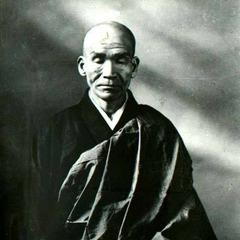In this case, the teacher he was referring to was Sawaki Kodo Roshi – he was a really great teacher. But Uchiyama Roshi practiced very closely with Sawaki Roshi for twenty-five years, until his death, so he knew Sawaki Roshi was not a special person, but an ordinary human being. Kodo Sawaki: To You. Essays of Kodo Sawaki. The Dharma Teachings of Kodo Sawaki. Today’s monks say zazen isn’t in demand anymore. They say, Sawaki is out of touch with the times. There is a bad deed, called “doing good”. For some, doing good is just a decoration. When something concerns the teaching, and at the same time it’s also a matter of expanding the business, somebody or another must have gotten something.
Kodo sawaki
- Kodo Sawaki Roshi, Uchiyama-roshi’s teacher, was described as being “like an ancient Zen master: fearless and unconventional.” By age 7, both his parents and the uncle who had later adopted him had died, and he was adopted by a professional gambler. At age 16 he went to Eihei-ji with aspirations of becoming a monk.
- Kodo Sawaki (nicknamed “Kodo the Homeless”) – is regarded by many as the greatest Zen Master of the twentieth-century. Kodo Sawaki was born in 1880 in Tsu, in the Mie prefecture. Orphaned at the age of ten, he was adopted by his lazy, gambling-addict uncle and his ex-prostitute wife.
| Kodo Sawaki | |
|---|---|
| School | Sōtō |
| Personal | |
| Nationality | Japanese |
| Born | June 16, 1880 Tsu, Mie, Japan |
| Died | December 21, 1965 (aged 85) |
| Senior posting | |
| Title | Rōshi |
| Successor | Kosho Uchiyama |
Kodo Sawaki (沢木 興道Sawaki Kōdō?, June 16, 1880-December 21, 1965) was a JapaneseSōtōZen teacher of the 20th century.
Biography
Sawaki's parents died early,[1] and he was adopted by an uncle who then died.[1] After his uncle's death, Sawaki was raised by a gambler.[1] When he was 16, he ran away from home to become a monk at Eihei-ji, one of the two head temples of the Sōtō Zen sect, and was ordained in 1899.[1][2] However, he was drafted to serve in the Imperial Japanese Army during the Russo-Japanese War of 1904-1905 to minister to the wounded. He later became a Zen teacher, and during the 1930s he served as a professor at Komazawa University.[1][2] In 1949, he took responsibility for Antai-ji, a zen temple in northern Kyoto.[1] Because of his regular travels throughout Japan to teach zen, and against tradition his not becoming a conventional abbot of a home temple, he came to be known as 'Homeless Kodo'[1] ('homeless' in the Japanese referring more to his lack of a temple than a residence). Sawaki died on December 21, 1965, at Antaiji.[2] He was succeeded by a senior disciple, Kosho Uchiyama.
He is known for his rigorous emphasis on zazen, in particular the practice of shikantaza, or 'just sitting'.[1] He often called Zen 'wonderfully useless,' discouraging any gaining idea or seeking after special experiences or states of consciousness.
Lineage
Dharma transmission to:
Though Sawaki ordained many monks and nuns, only five monks and three nuns received Dharma Transmission (Shihō) from Sawaki:
- Shūyū Narita (1914-2004) who also had a few students in Europe,
- Kosho Uchiyama (1912-1998), who followed in his footsteps as abbot of Antai-ji,
- Sodō Yokoyama, also known as 'kusabue zenji (Zen master with the grassflute)',
- Satō Myōshin, active in Japan,
- Kōjun Kishigami[3] (born 1941), lives in Japan, has got students in Japan, France and Germany,
- Jōshin Kasai, died 1984 in Antai-ji,
- Kōbun Okamoto, alive in Ichi-no-miya, Japan, where she teaches kesa sewing,
- Baikō Fukuda.
Influential students:
Other influential students of Sawaki are:
- Gudo Wafu Nishijima (born 1919), teacher of Brad Warner[4] and Jundo Cohen[5]
- Genkō Kawase (died. 1989), had her own temple Myōgen-ji in Nagoya,
- Sakai Tokugen, the teacher of Fumon Nakagawa, who teaches in Germany
- Kōun Enmyō (died 1980),
- Taisen Deshimaru[6] (1914-1982), went to France in 1967, and established the Association Zen Internationale.
Bibliography
- The Zen Teaching of 'Homeless Kodo' (1990) by Uchiyama Kōshō
References
External links
Kodo Sawaki Sayings
- Sayings by Kodo Sawaki
- Seven chapters that were not included in the English translation of 'The Zen Teaching of 'Homeless Kodo' (Sayings by Kodo Sawaki with some texts by Kosho Uchiyama)
- Zen teachings by Kodo Sawaki
Help improve this article
Compiled by World Heritage Encyclopedia™ licensed under CC BY-SA 3.0Help to improve this article, make contributions at the Citational Source, sourced from Wikipedia
Kodo Sawaki Amazon

Kodo Sawaki Quotes
Dokusan
